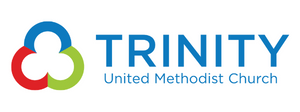2.16.25 CREATING THE COVENANT: Thankful for Sacrifice
Hebrews 10:19-25, Hebrews 5:1-10
Episode 6: Witness
Daily Reading:
Day 1: Hebrew 1-2, Psalm 8
Day 2: Hebrews 3-4, Numbers 14
Day 3: Hebrews 4:14-7:28, Psalm 110
Day 4: Hebrews 8:1-10:18, Leviticus 16
Day 5: Hebrews 10:19-13:25
Day 6: Hebrews 10:6-11
Day 7: Group Meeting Experience on Hebrews 5:11-6:12
What do you think the biggest lie you tell yourself is? For me, it’s the belief that I have to save myself. Instead of trusting Jesus to do the work of saving, I fall into the trap of thinking that I alone am the only one I can depend on, and that anything good in my life must come solely from my own effort. It’s in this very trap—when I start relying on myself instead of Christ—that sin sneaks into my life.
This struggle is not unique to me or to our modern world. It mirrors the tension faced by the audience of the book of Hebrews, who were wrestling with their identity as people of the new covenant in Jesus Christ. These early Jewish Christians were caught between two pressures: the pull to revert to the old covenant practices of the Mosaic Law for security and belonging and the cultural temptation to assimilate into the Greco-Roman world with its values of self-reliance and conformity. The letter to the Hebrews addresses this tension by pointing them—and us—back to the sufficiency of Jesus as the mediator of a better covenant.
Throughout Hebrews, the author reminds the audience that the old covenant, while significant and God-ordained, was always pointing toward something greater. Hebrews 8:6 says, “But in fact the ministry Jesus has received is as superior to theirs as the covenant of which he is mediator is superior to the old one, since the new covenant is established on better promises.” The sacrificial system of the old covenant, though meaningful in its time, was incomplete—it could not perfect the people or fully atone for their sins. But through Jesus’ life, death, and resurrection, the new covenant was established once and for all. His sacrifice did what no amount of human effort could ever achieve: eternal redemption and reconciliation with God.
In reminding his audience of this truth, the author of Hebrews connects them to the great stories of faith from the Old Testament, those who lived as part of the covenant community before Christ. Hebrews 11 recounts the faith of figures like Abraham, who trusted God’s covenant promise that his descendants would be as numerous as the stars, and Moses, who chose to align himself with God’s people rather than the fleeting pleasures of Pharaoh’s court. These individuals were not perfect, nor did they save themselves—they trusted in God’s covenant promises, even when the fulfillment of those promises seemed distant or impossible.
For the early church, embracing this new covenant meant letting go of both cultural expectations and the security of the old system. It was an act of faith to trust that Jesus had done the work they could not do for themselves. Hebrews 12:1-2 calls them—and us—to “run with perseverance the race marked out for us, fixing our eyes on Jesus, the author and perfecter of faith.”
When I fall into the lie of self-reliance, I forget that I’m living in covenant with a God who has already done the work of saving me through Jesus. Like the audience of Hebrews, I need to remember that I’m part of a bigger story—a covenant story that began with Abraham and continues through Christ, binding me to a community of faith that spans generations.
The challenge for all of us is this: How can we live as people of the covenant, trusting in God’s promises instead of striving to save ourselves? How can we, like the early Christians, resist the pull of culture and embrace the freedom, unity, and hope that come from being part of God’s covenant family? The book of Hebrews reminds us that our identity is rooted not in what we do, but in what Jesus has done—and that truth changes everything.
Discussion Questions:
- How does the concept of covenant shape the way you understand your relationship with God?
- In what ways are you tempted to rely on yourself rather than trusting Jesus to do the work of saving?
- What can we learn from the faith of Old Testament figures like Abraham and Moses that helps us navigate the tension between cultural pressures and our identity as people of the new covenant?
